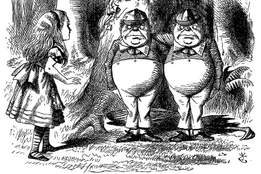ad·jec·tive
ˈa-jik-tiv 

also ˈa-jə-tiv
: a word belonging to one of the major form classes in any of numerous languages and typically serving as a modifier of a noun to denote a quality of the thing named, to indicate its quantity or extent, or to specify a thing as distinct from something else
The word red in "the red car" is an adjective.
1
: of, relating to, or functioning as an adjective
an adjective clause
2
: not standing by itself : dependent
3
: requiring or employing a mordant
adjective dyes
4
: procedural
adjective law
adjectively
adverb
Love words? Need even more definitions?
Merriam-Webster unabridged









Share